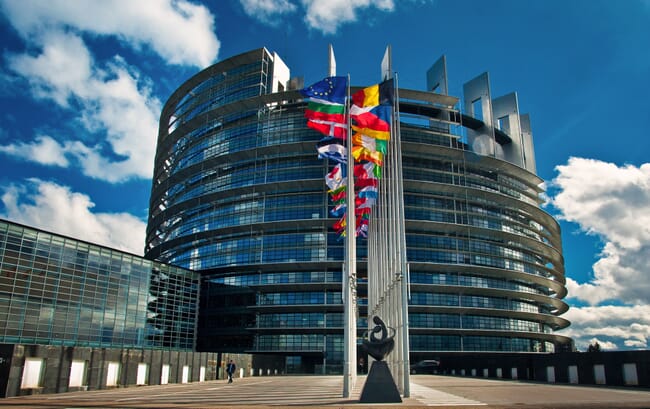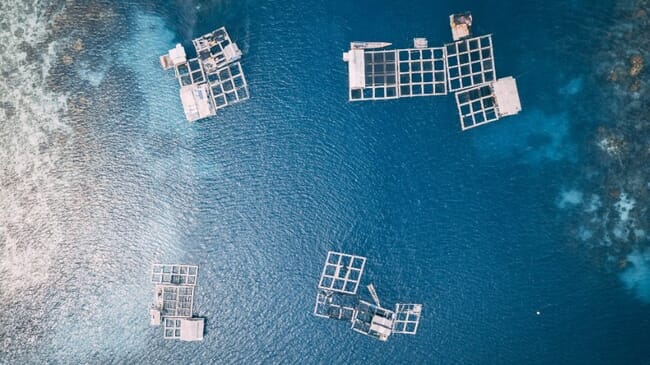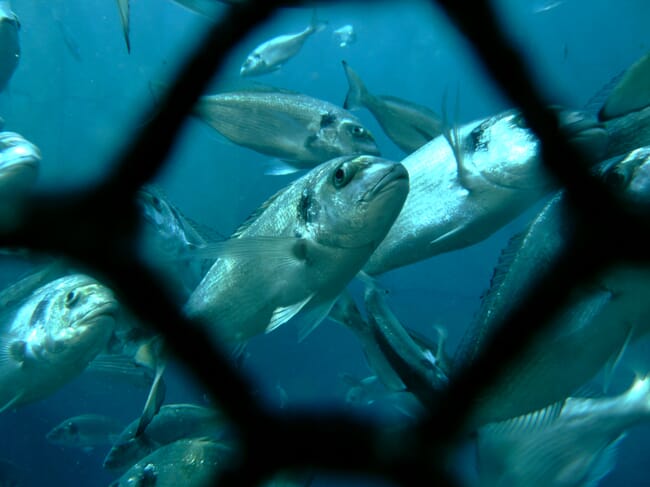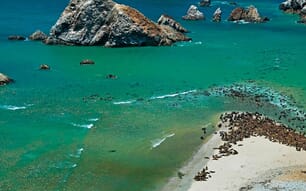
The new measures hope to promote the use of cleaner energy sources and reduce dependency on fossil fuels while reducing the sector's impact on marine ecosystems.
According to a news release from the Commission, the package includes four elements: A Communication on the Energy Transition of the EU Fisheries and Aquaculture sector; an Action Plan to protect and restore marine ecosystems for sustainable and resilient fisheries; a Communication on the common fisheries policy today and tomorrow and a Report on the Common Market Organisation for fishery and aquaculture products.
The main objectives of the measures are to promote the use of cleaner energy sources and reduce dependency on fossil fuels as well as reduce the sector's impact on marine ecosystems. The proposed actions will be carried out gradually to help the sector adapt. A “Pact for Fisheries and Oceans” will also support the full implementation of the Common Fisheries Policy (CFP) in coordination with Member States and fisheries stakeholders, including fishers, producer organisations, regional advisory councils, civil society and scientists. The proposals also have at its heart making the sector an attractive job place for the younger generations.
“Much of our economy depends on nature. Fisheries are quite possibly the sector where this link is most direct,” said Frans Timmermans, executive vice president for the European Green Deal earlier in February. “Europe’s marine ecosystems and the fish, shellfish, algae, and plants that are part of them are crucial to the economic viability of fisheries. With these proposals we aim to build a sustainable relationship with our seas.”
“The European Commission will work with local fishing communities, the aquaculture and fisheries sector and help them adopt sustainable practices, from reducing energy usage to using more selective fishing gear. When we ensure the sustainability of fisheries we invest in the resilience and future of the sector and its workers. Working together, we can find the right balance and establish healthy marine ecosystems all over Europe,” Timmermans commented.
Net zero emissions fisheries and aquaculture sector by 2050
The sector's current dependency on fossil fuels is not only environmentally unsustainable, but also makes it vulnerable to energy price increases. When fuel prices increased in 2021 and 2022, aquaculture ventures came under financial pressure as their food and feed expenditures got larger. Though the sector benefitted from EU financial support, some businesses weren’t able to cover their operational costs.
The news release says that the Commission’s proposals will reduce dependency on fossil fuels and aim towards a climate neutral aquaculture sector. This will help with the broader EU policy objectives of the European Green Deal, which hopes to see the EU reach climate neutrality by 2050. It is proposing measures to support the sector in accelerating its energy transition, by improving fuel efficiency and switching to renewable, low-carbon power sources.
One of the key actions is an energy transition partnership for EU fisheries and aquaculture. It will bring together all stakeholders, including in fisheries, aquaculture, shipbuilding, ports, energy, NGOs, national and regional authorities, to collectively address the challenges of the sector's energy transition.
The Commission will also work to close the gaps in the transfer of technology from research and innovation to application; to promote the development of skills among the workforce; and to improve the business environment, including in financing opportunities and awareness.

The new measures will facilitate partnerships between stakeholders in the aquaculture, shipbuilding, port infrastructure and energy sectors. © Hanson Lu
Protecting marine ecosystems for sustainable aquaculture
Climate change, biodiversity loss and ocean pollution threaten the sustainability of the EU’s aquaculture resources. The Commission is presenting a marine action plan to reinforce the CFP's contribution to the EU's environmental objectives and reduce the adverse impact of fishing activities on marine ecosystems.
The action plan contributes to delivering on the EU Biodiversity Strategy for 2030 and its commitment to legally and effectively protect 30 percent of EU seas, with one third being strictly protected. To fulfil this goal, the Commission calls on Member States to take fisheries conservation measures to protect and manage marine protected areas (MPAs) effectively, with a clear timeline. These efforts should include the protection of fish spawning and nursery areas, the reduction of fish mortality rates and the restoration of core areas for sensitive species and habitats.
As oceans and seas cover 71 percent of the Earth's surface and more than 65 percent of EU territory, the action plan will also be part of the EU's contribution to the implementation of the recently agreed Kunming-Montréal biodiversity agreement.
“Pact for Fisheries and Oceans” to help implement the common fisheries policy
The Commission believes that the common fisheries policy is still an appropriate legal framework for tackling the challenges that face marine industries in the trading bloc. The three main principles on which the policy is based are still relevant today: environmental, social and economic sustainability; effective regional cooperation and science-based decision-making. However, several challenges remain for the CFP to be fully implemented. Faster and more structural transformation is needed to reduce environmental and climate impacts of fishing and aquaculture.

Though the Commission still stands behind the common fisheries policy, it believes that faster and more structural transformation is needed to reduce environmental and climate impacts of fishing and aquaculture. © Pablo Arechavala Lopez
Implementing the CFP is necessary to restore a healthy marine environment and ensure food security. Full implementation will also help the sector become more resilient, increase energy efficiency and contribute to climate neutrality. This will help to save on fuel costs and thrive on green energy.
The Commission is now proposing a “Pact for Fisheries and Oceans” that will establish a united vision for the future of the aquaculture and fisheries sector. It will reconfirm the joint commitment to fully implement the CFP and launch discussions between all stakeholders on future-proofing the policy in terms of both social and environmental resilience.




